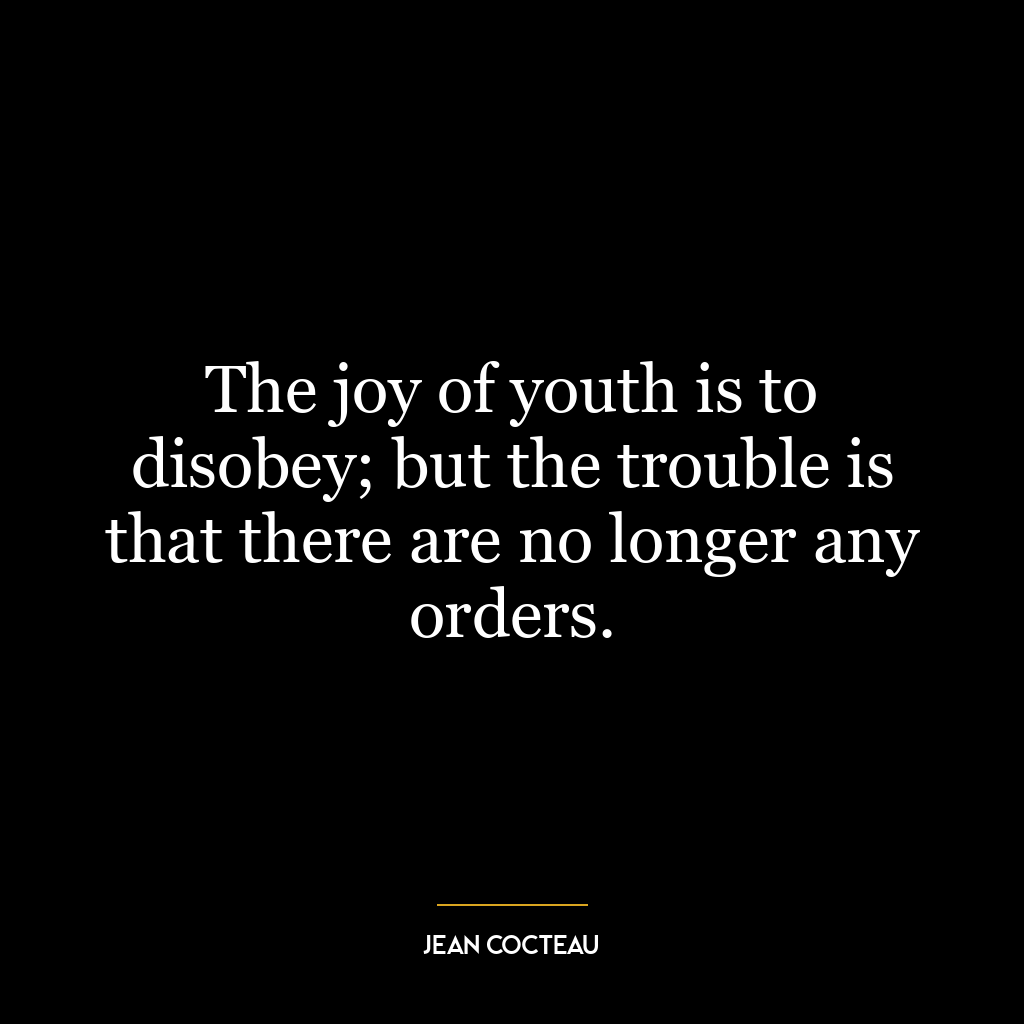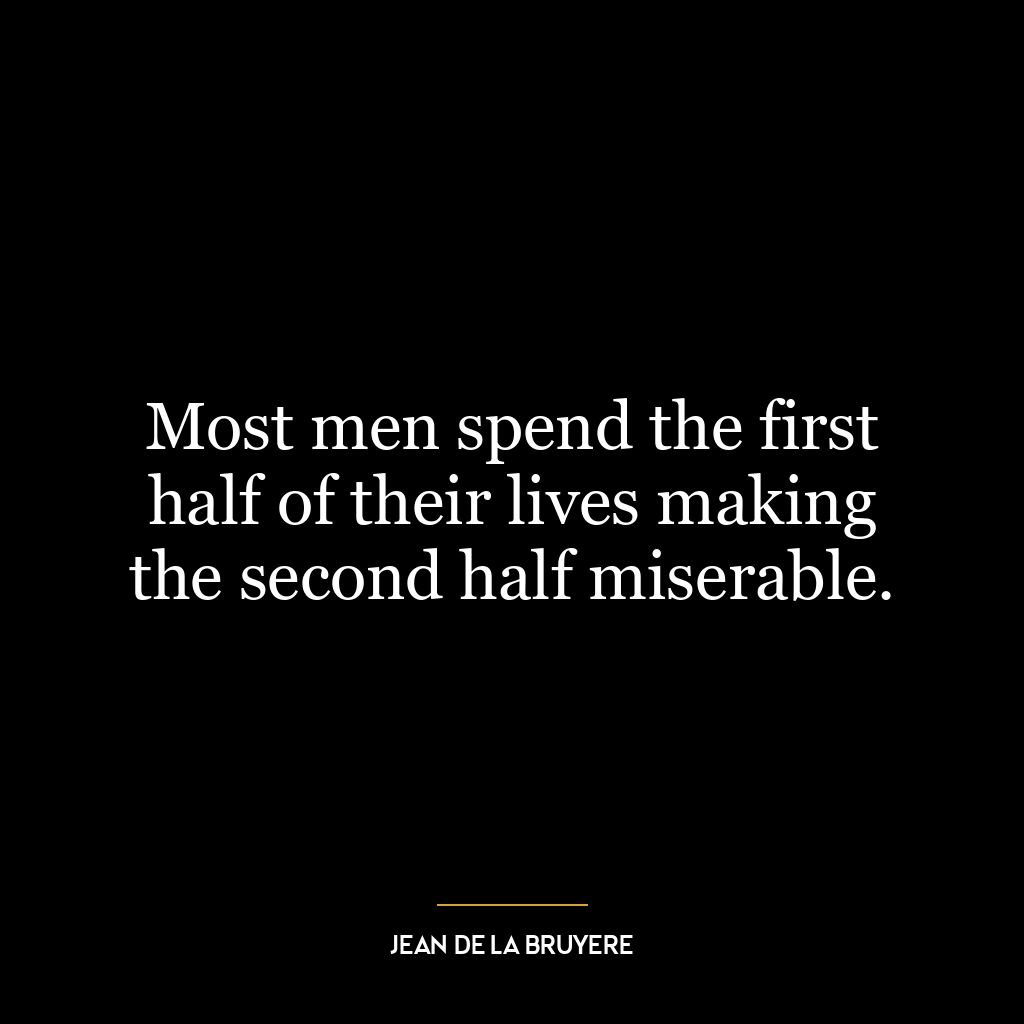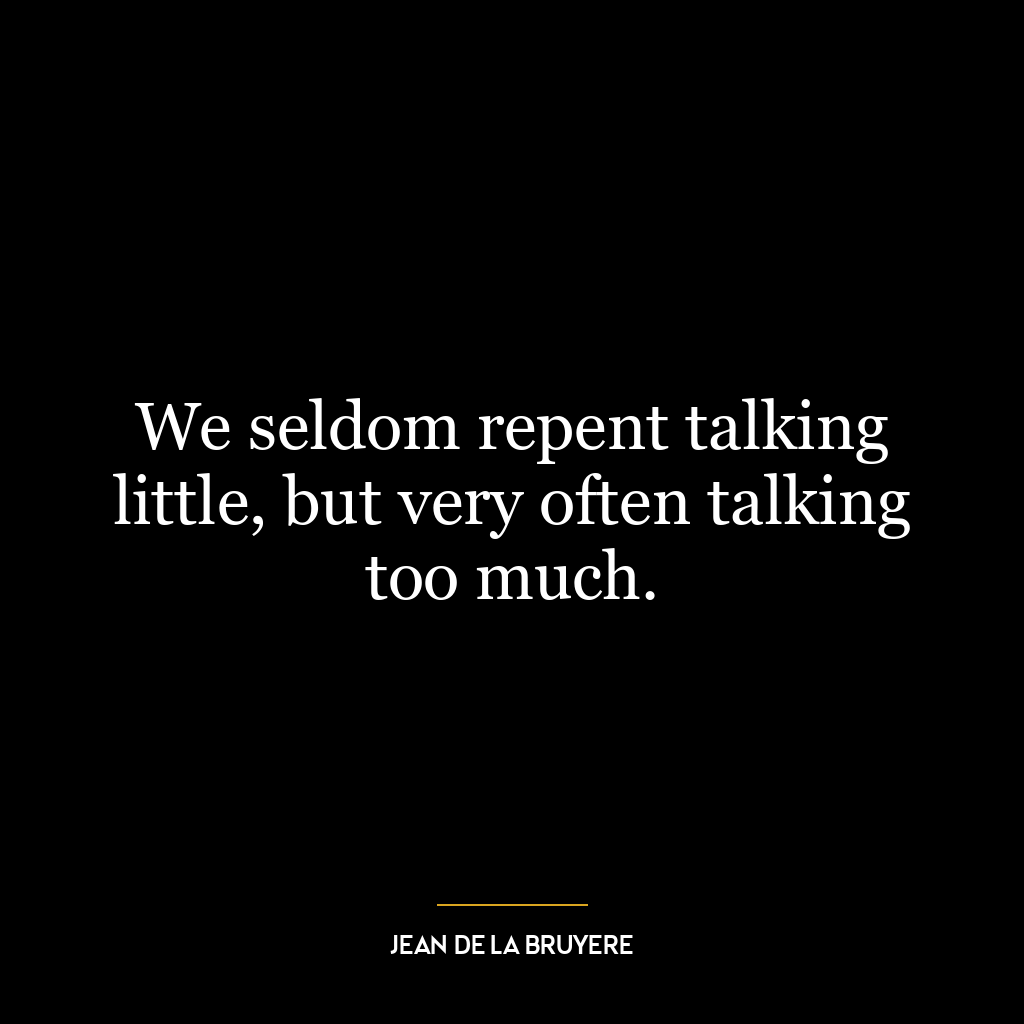This quote suggests that the real tragedy of aging isn’t the physical and temporal state of being old, but the feeling of youthfulness within, the mental and emotional state of being young. It’s about the internal conflict that arises when our bodies age but our spirits remain youthful. The tragedy lies in the fact that as we age, we still feel young at heart, full of dreams, aspirations, and a zest for life, but our bodies may not be able to keep up with our youthful spirits.
The quote is a reflection on the human condition, a poignant commentary on the passage of time, and the discord that can occur between our physical and mental states. It suggests that the true sorrow of aging is not the physical deterioration, but the unfulfilled potential, the dreams not realized, the experiences not lived. The tragedy is in the discrepancy between how old we feel inside and what our bodies can actually do.
In today’s world, this quote can be seen as a call to action to live life to the fullest, to not let age define us or limit our potential, to keep our spirits youthful and our minds open, no matter how old we get. It encourages us to not let the physical limitations of age deter us from pursuing our dreams, from living our lives as we want to.
In terms of personal development, this quote can be a reminder to always nurture our inner youth, to keep dreaming, learning, and growing. It emphasizes the importance of mental and emotional health, of keeping our minds sharp and our hearts young. It suggests that age is just a number, and that we are only as old as we feel. Thus, we should focus on maintaining a youthful spirit, on cultivating a positive and open mindset, and on living a fulfilling and meaningful life, regardless of our physical age.










